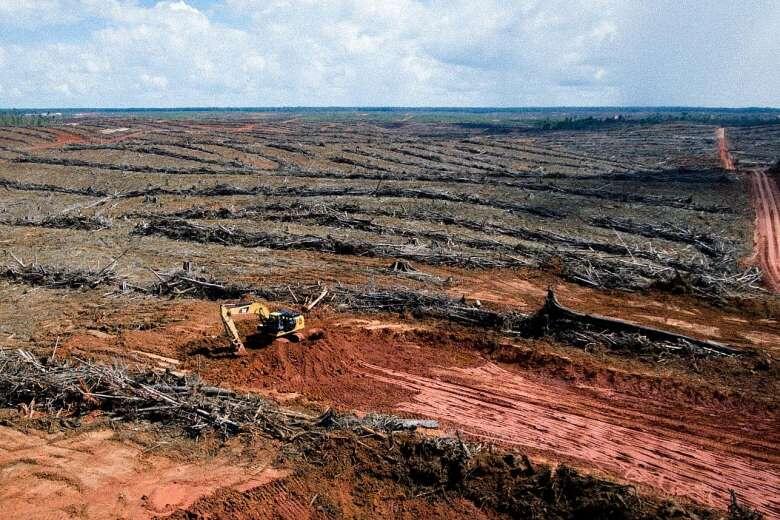Pristine rainforests in Indonesia’s far-eastern regions – home to the endangered tree kangaroos, rare cassowaries and birds of paradise – are being cleared and illegally burned to make way for oil palm plantations, an investigation has claimed.
Korindo Group, an IndonesianKorean conglomerate, used the outlawed slash-and-burn method to clear more than 50,000ha of tropical lowland forests in Papua and North Maluku provinces between 2013 and last year, according to the investigation by Indonesian and international green groups led by a new US-based watchdog known as Mighty.
The group, which is affiliated with Washington-based think-tank Center for International Policy, was officially launched on Thursday.
Using satellite imagery, hot spot data and aerial photographs, the group alleged that “no less than 894 fire hot spots” were detected in the company’s oil palm concessions during 2013-15.
The findings, released on Thursday in a report called Burning Paradise, have been submitted to the Ministry of Environment and Forestry, according to Mighty’s Southeast Asia forest director Bustar Maitar, a veteran Indonesian environmental activist.
Korindo, whose main businesses include pulpwood and oil palm, and which is the biggest palm oil company in Papua, had “contributed significantly to Indonesia’s haze disaster in 2015”, said the report, referring to the regional haze crisis that affected millions across South-east Asia, including Singapore.
“Those regions are the last remaining intact forests in South-east Asia, with high biodiversity and indigenous people – our last paradise,” Mr Bustar said. “The regions are far from the crowds, so environmental activities there are monitored less by the authorities.”
Mr Bustar said Korindo is among 20 companies operating oil palm plantations in Papua and North Maluku, but is the first identified as having used the illegal land-clearing method.
In a statement on Thursday, the Korindo Group denied the allegations, saying the company adopts a zero-burning policy. It said “there’s no burning in our oil palm plantation for the purpose of plantation development”.
Satellite images used in the report were taken after last September, which coincided with the dry season in Indonesia, where oil palm plantations, natural forests and national parks were “prone to fires”, Korindo said, adding that it was “not true” it had contributed to last year’s haze. The company said its oil palm plantations had “obtained official permission from the Indonesian government and adhered to all legal procedures… Our hypothesis regarding this (burning) incident is that residents or natives who have access to the areas through our plantations, had caused a fire for the purpose of hunting wildlife”.
The investigators said the satellite images show that the hot spot locations closely mirrored Korindo’s land development. “This means the fires could not have been natural or set by local communities as Korindo argues, given that the affected areas shift year by year and directly follow Korindo’s activities,” the report says.
It is unclear how many companies trade with Korindo but at least two, agri-business group Wilmar International and large palm-oil producer Musim Mas Group, have stopped taking supplies from the firm following the expose.
A Wilmar spokesman told The Straits Times in an e-mail that the company had “immediately initiated engagement with Korindo”, but “due to a lack of progress from the supplier, and in view of the serious allegations, Wilmar has ceased procuring from Korindo with effect from June 2016”.
Separately, Ms Carolyn Lim, corporate communications manager with Musim Mas, in an e-mail said Korindo will be implementing a three-month moratorium on one of its concessions, and Musim Mas “will continue to stop buying palm oil temporarily and monitor Korindo’s progress in the interim”.
Source: Straits Times











